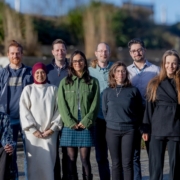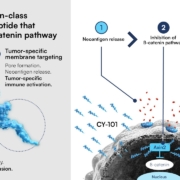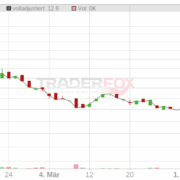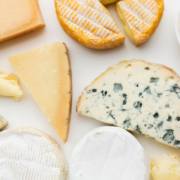Just three weeks to go until Europe’s largest event for laboratory automation and drug screening. SLAS Europe 2025, organised by the Society for Laboratory Automation and Screening (SLAS), will take place from 20-22 May in Hamburg, Germany. In a series, European Biotechnology presents the 12 most innovative SMEs. Today: Nanoworx BV.
ADVERTISEMENT
Only three weeks to go until Europe’s largest event for laboratory automation and drug screening. SLAS Europe 2025, organised by the Society for Laboratory Automation and Screening (SLAS), will take place in Hamburg from 20-22 May. In a series, European Biotechnology Magazine presents the 12 most innovative SMEs today: UK-based Nanovery Ltd
A team led by Imperial College London has launched a miniature lab into Earth orbit to test the production of edible proteins in space with the help of yeast-based biotech.
A new biomarker for Parkinson’s disease makes it possible to recognise and treat the hereditary dopamine deficiency before the mid-brain is damaged, reports University Bochum spin-out betaSense GmbH.
Barcelona-based epigentics specialist Oryzon Genomics, SA, a clinical-stage biopharmaceutical company and a European leader in epigenetics, announced today the successful completion has completed an oversubscribed €30m capital increase through issuing 12,765,958 new shares, priced at €2.35 per share.
Cytovation ASA has baged US$6m to advance Phase II development of its bi-specific pore-forming peptide candidate CY-101 in patients with adrenocortical carcinoma.
RWK Bidco AB, newly founded by the private equity firm KKR (Kohlberg Kravis Roberts & Co.), has identified Swedish separation specialist Biotage AB as a takeover target and submitted an official takeover offer.
Boehringer Ingelheim and synthetic lethality specialist Tessellate Bio have entered into an €500m biobucks global license agreement on oral first-in-class cancer treatments.
Despite the World Trade Organisation’s (WTO) ban of tariffs on pharmaceuticals, US President Donald Trump has announced he would consider imposing tariffs on pharmaceutical products. In a fast reaction, Swiss pharmaceutical giants Roche and Novartis, which are heavily dependent on the US market, have announced upcoming investments in the US as a production location by 2030.
French dairy heavyweight Bel Group has teamed up with Standing Ovation in a bid to transform surplus whey from cheese production into high-value casein proteins using precision fermentation. The collaboration is set to address the longstanding issue of under-utilised acid whey, a by-product that often goes to waste in the dairy sector.


 Nanoworx BV
Nanoworx BV Nanovery Ltd
Nanovery Ltd
 Marquard - Ruhr University Bochum
Marquard - Ruhr University Bochum adobe stock - Yanina
adobe stock - Yanina  Cytovation ASA
Cytovation ASA Traderfox
Traderfox adobe stock - JHVEPhoto
adobe stock - JHVEPhoto  adobe stock - peterschreiber.media
adobe stock - peterschreiber.media 